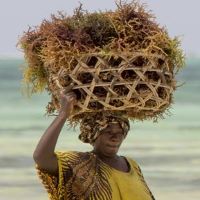

AquaInvest Platform
Authors
Tags
- AgTech (1)
- Seaweed farming (17)
- Gender (3)
- Research (1)
- Biodiversity (1)
- Guidelines (1)
- Seaweed (24)
- Fishery (8)
- Environment, Disaster Risk, and Climate Change (1)
- China (1)
- Region - East Asia and Pacific (2)
- Agriculture (17)
- Agriculture Data Platform (1)
- Korea (4)
- Ecosystem Services (3)
- Policy and Regulations (1)
- Climate Change Adaptation (4)
- Climate Resilience (5)
- Food Safety (3)
- Africa (2)
- Mariculture (21)
- Food Security (8)
- Policy - Food Security (1)
- Gender Equality (2)
- Blue Economy (31)
- Agribusiness (12)
- Climate Change (5)
- AFR Region (1)
- Environment (13)
- Policies and Legislation (2)
- Aquaculture (40)
- Indonesia (1)
- Nutrition & Diets (1)
- women (1)
Documents
Mapping aquaculture suitability in Zambia
The Government of Zambia has partnered with the World Bank, including the AquaInvest Platform , funded by PROBLUE , a multidonor trust fund administered by the World Bank, to carry out strategic
Sustainable aquaculture through the One Health lens
Aquaculture is predicted to supply the majority of aquatic dietary protein by 2050. For aquaculture to deliver significantly enhanced volumes of food in a sustainable manner, appropriate account needs to
COASTAL CONSERVATION AND SUSTAINABLE LIVELIHOODS THROUGH SEAWEED AQUACULTURE IN INDONESIA: A Guide for Buyers, Conservation Practitioners, and Farmers
Over one million coastal Indonesians engage in seaweed aquaculture, a unique and growing global industry for production of carrageenan and agar, direct consumption, and animal feeds, among other uses. Carrageenan
Seaweed Industry in China
Seaweed industry in Norway needs to strategically figure out whether to export cultivated and harvested kelp raw materials to China for alginates and/or food industry, or, to cultivate, harvest and
Seaweed blue carbon: Ready? Or Not?
There is an urgent need to achieve the United Nations Sustainable Development Goals (SDGs). At the same time, greenhouse gasses (GHGs) that contribute to global warming must be reduced to avoid even more severe
Potential role of seaweeds in climate change mitigation
Seaweed (macroalgae) has attracted attention globally given its potential for climate change mitigation. A topical and contentious question is: Can seaweeds' contribution to climate change mitigation be enhanced at globally meaningful
Republic of Korea - Law on the Promotion and Support of the Seaweed (Laver) Industry
Republic of Korea - Law on the Promotion and Support of the Seaweed (Laver) Industry Article 4 (Establishment of Basic Plan) The Minister of Oceans and Fisheries shall establish
Blue carbon: The potential of coastal and oceanic climate action
Nature-based climate solutions in the world's oceans can play an important role in conservation and carbon abatement efforts worldwide. Assessing blue carbon solutions McKinsey’s new report,Blue Carbon: The potential
Seaweed aquaculture: cultivation technologies, challenges and its ecosystem services
Seaweed aquaculture technologies have developed dramatically over the past 70 years mostly in Asia and more recently in Americas and Europe. However, there are still many challenges to overcome with
Kelps in Korea: from population structure to aquaculture to potential carbon sequestration
Korea is one of the most advanced countries in kelp aquaculture. The brown algae, Undaria pinnatifida and Saccharina japonica are major aquaculture species and have been principally utilized for human